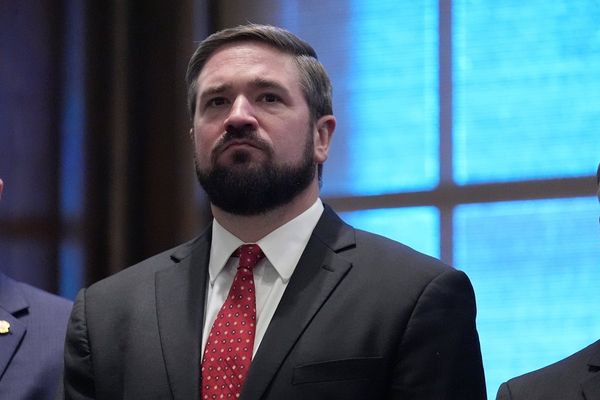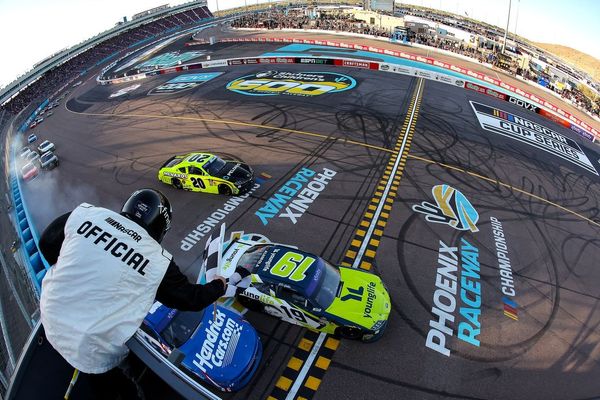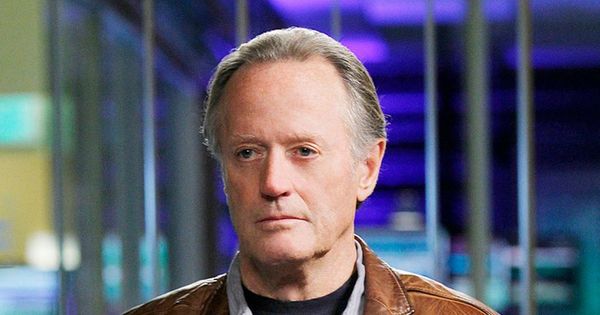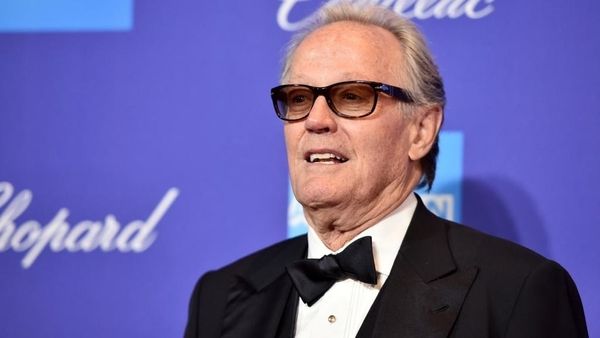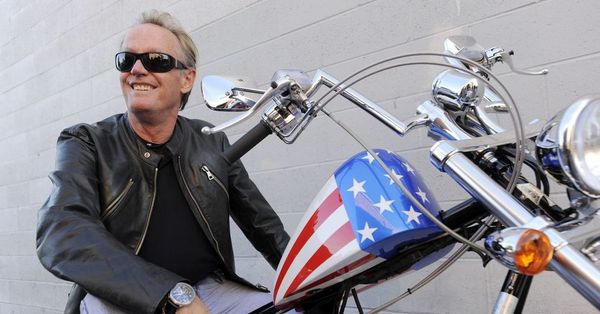
Peter Fonda starred as a hippie biker in the 1960s generational touchstone film Easy Rider, then shunned stardom only to emerge decades later in one of his finest roles, playing a reserved beekeeper with explosive depths in Ulee’s Gold.
Fonda, who has died aged 79, grew up in the shadow of his father, Henry Fonda, and older sister, Jane Fonda, both of whom won Academy Awards for acting. He entered the family business in the 1960s, often playing renegade characters and acting the part in real life.
In 1966, he played a biker named Heavenly Blues in Roger Corman’s The Wild Angels, then was an LSD-taking character in Corman’s The Trip (1967). Fonda essentially combined the two roles in Easy Rider, which was released in 1969.
He conceived the idea for the film, then called on fellow actor Dennis Hopper to direct the project. “I figure you direct it, I produce it, we’ll both write it and both star in it, save some money,” Fonda said, according to the book Easy Riders, Raging Bulls by Peter Biskind. The film was made for less than $400,000.
Fonda enlisted novelist Terry Southern to help with the screenplay, which followed the two central characters, Wyatt and Billy (played by Fonda and Hopper, respectively), on a motorcycle trip across the west towards New Orleans.
With a powerful rock’n’roll soundtrack featuring, among other songs, Steppenwolf’s “Born to Be Wild”, Easy Rider was released the same year as the Woodstock festival and caught the spirit of the age. The “chopper” motorcycles became a symbol of open-road rebellion, and Fonda’s character, often wearing a stars-and-stripes helmet, was dubbed “Captain America”.
Easy Rider was an unexpected box-office success, and the screenplay by Fonda, Hopper and Southern was nominated for an Academy Award. The film helped usher in a new era in Hollywood, giving rise to a generation of auteur directors including Steven Spielberg, George Lucas and Martin Scorsese.
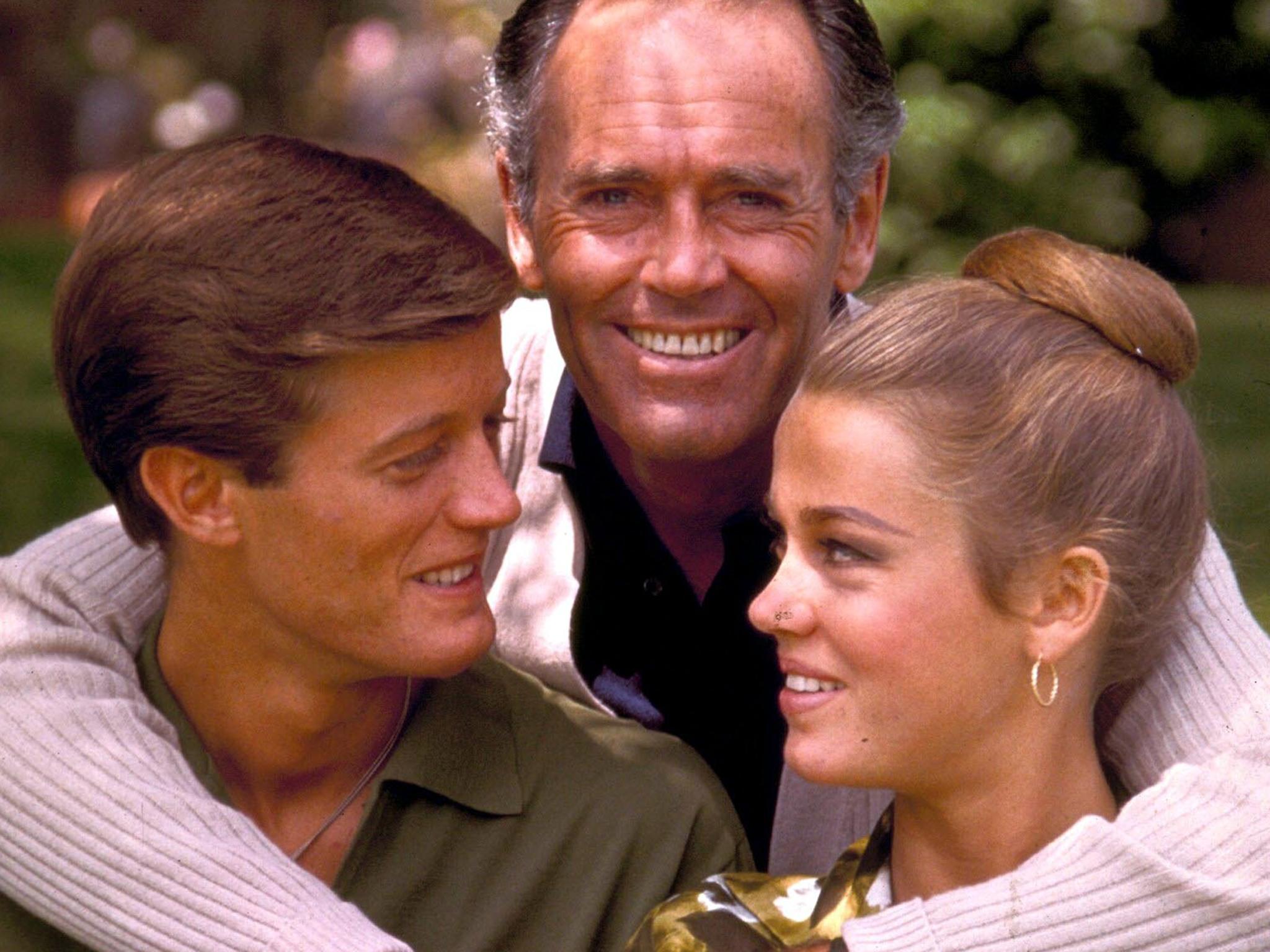
Fonda bought a yacht and led a life of excess for the next decade, never equalling the success or esteem of Easy Rider. Hopper, Fonda’s father and his sister all gained critical acclaim in the 1970s, but Fonda found himself in films such as Dirty Mary Crazy Larry (1974), playing a thieving bad-boy driver, or in High-Ballin’ (1978), as a rebel truck driver.
In 1983 Fonda regained some respect as an actor in the German film Peppermint Frieden (Peppermint Freedom), portraying an American soldier in after the Second World War. In 1997 he was cast against type in Ulee’s Gold (written and directed by Victor Nunez), playing an emotionally closed widower who unexpectedly finds himself raising his two granddaughters. He was nominated for an Oscar and won a Golden Globe Award as best actor.
He said he didn’t have to search for to find his inspiration in portraying Ulee Jackson. “I knew Ulee well,” he said in 1997. “He’s a recalcitrant man with a visage that shows no hint of kindness. I had breakfast across the table from that guy my whole life … Oh boy, did I know that guy. Son of a bitch, it was my father.”
Peter Henry Fonda was born in 1940, in New York City. His father was already an established Hollywood star; his mother was an emotionally fragile socialite. His parents’ marriage was always rocky, and Fonda’s mother died in 1950. At first, he and his sister, who is two years older, were told she had a heart attack. They learned a few years later that she had taken her own life.
In 1951, soon after Henry Fonda remarried, 11-year-old Peter was seriously wounded when he shot himself with a pistol, an incident Fonda always said was an accident, not a suicide attempt.
During his rebellious teen years, he was sent to live with an aunt and uncle in his father’s hometown of Omaha, where he attended what is now the University of Nebraska at Omaha. He acted in local stage productions, then made his Broadway debut in 1961. He appeared in his first film, Tammy and the Doctor, in 1963.
Throughout the 1960s, Fonda cultivated a reputation as a drug-using rebel, smoking marijuana, taking LSD and befriending rock musicians. He wrote about his wild years, marked by numerous affairs and his distant relationship with his father, in a 1998 autobiography, Don’t Tell Dad. He and his father became close in the years before Henry Fonda’s death in 1982.

After the success of Ulee’s Gold, Fonda had a remarkable Hollywood resurgence as a character actor, playing dozens of roles, most notably as an amoral record producer in The Limey (1999) and in the 2007 western 3:10 to Yuma. He completed several films that have not yet been released.
In time, Fonda became reconciled to his talent, his heritage and his place in Hollywood history. “I’m not chasing fame,” he said in 1997. “I was born famous. If I were digging ditches today, the guys at the other end of the ditch would say: ‘You know who that is? That’s Jane Fonda’s brother.’ Or Henry Fonda’s son. No matter what, I’ll never escape that.”
Fonda’s first two marriages, to Susan Brewer and Rebecca “Becky” Crockett McGuane, ended in divorce. He is survived by his third wife Margaret DeVogelaere and two children from his first marriage.
Peter Fonda, actor, born 23 February 1940, died 16 August 2019
© Washington Post

